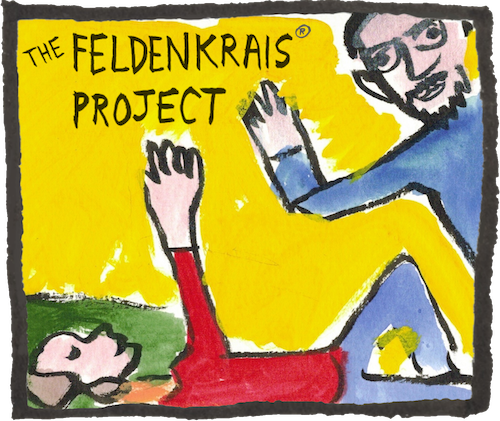Difficulty: Average Challenge
58m
The Power of Prone: Twisting on Your Belly
Designed to be as accessible as possible, this lesson uses frequent back-lying rests and auxiliary movements to help listeners find more comfort, ease, and learning value while prone. Moving with awareness while lying on your belly can lead to unique benefits for the spine, chest, shoulders, and neck, as well as improvements for posture and breathing.
60m
Dynamic Balance: Stability Through Suppleness (Patrons)
Framed by brief explorations in standing, this mostly side-lying lesson presents gently de-stabilizing movements of the head and legs to help you explore and improve your balance in a supple, whole-self way.
57m
Rib Basket, Shoulder Cloak (Patrons)
Framed by brief standing explorations of breathing and walking, this mostly back-lying lesson is designed to improve differentiation of the ribs and shoulders, and to improve their integration with functional movements of the arms, legs, hips, spine, and head. Uses a fascinating constraint of precisely relating the scapulas to the plane of the floor.
58m
Sensing Stability: The Sacral Clock (Patrons)
Framed with explorations of dynamic stability in standing, this back-lying lesson is a play on Moshe Feldenkrais' most famous image. Small movements in an unusual configuration of the legs create a precise, gentle challenge designed to promote new awareness and choices for our hip joints, pelvis, and lower back (along with everything else).
58m
Side-Bending with Listening Hands, Connecting Legs and Head (Patrons)
Side-lying. Using your own soft, listening hands to help integrate your head, hips, and legs with an increased awareness and suppleness of your ribs.
42m
Side Clock: Hips (42m, Patrons)
Side-lying. Uses the image of a clock face on your mat to explore precise movement coordination, developing freedom and skill in the hips, lower back, chest, and more, with nudges toward improvisation. This lesson can be studied on its own, but you may enjoy the learning challenge of, over a couple of days, exploring Side Clock: Shoulders (and Intro to Hip) first, then experimenting with your own improvisations as recommended in that lesson, THEN going on to this lesson.
57m
The Liminal Lesson: Transitions Between Action and Rest (Patrons)
Mostly side-lying. Improving quality of rest and efficiency of action by clarifying the transitions between them. Get to know the actual sensations and somatic processes of preparing for action and transitioning to rest. Explored in a lesson structure designed to improve uprightness and gait.
60m
Side Clock: Shoulders (and Intro to Hip)
Side-lying. Starts as a "Feldenkrais basics" shoulders-and-hips lesson, then uses the image of a clock face to explore precise coordination, developing freedom and skill in the shoulders, chest, neck, and more. An emphasis on choice, imagery, principles, and improvisation creates a unique learning opportunity for your Feldenkrais study: you're invited to complete your own hip clocks.
58m
Arms Like a Skeleton, Freeing the Shoulders and Neck (Patrons)
Back-lying, side-lying, transitioning. This detailed exploration starts simply then dives deep into variations designed to help you get to know your scapulas and improve their relationship with your spine, chest, pelvis, neck, and head.
59m
Side-lying Twist, and Rolling Recap (Patrons)
Back-lying, side-lying, transitioning, and eventually circling the arm. Recorded as the third in a series (see the Related Lessons tab). With plenty of room for improvisation, this lesson builds on recent classes and discussions with students about encountering difficulty in Feldenkrais study. Starts and ends with three-minute talks.
